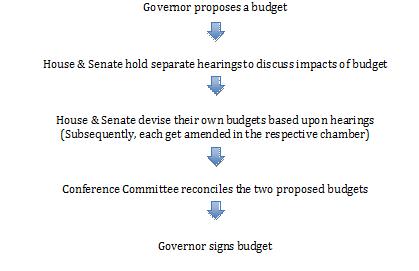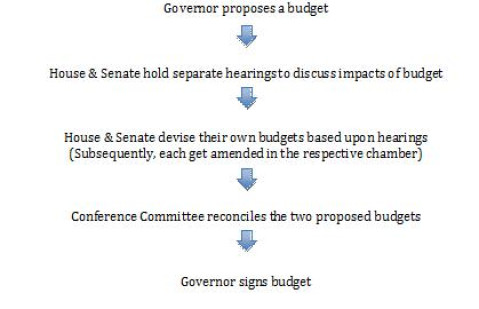Widgetized Section
Go to Admin » Appearance » Widgets » and move Gabfire Widget: Social into that MastheadOverlay zone
None Shall Pass
The views expressed are those of the author and do not necessarily reflect the views of ASPA as an organization.
By Laura Caccioppoli
September 22, 2015
Here in Philadelphia, there has been no shortage of political and public administrative craziness going on. Representative Chaka Fattah has been indicted on charges of bribery, money laundering and fraud. The Attorney General, Kathleen Kane, has been charged with perjury and leaking information. Philadelphia District Attorney Seth Williams is leading his office through a pornography scandal. It is easy to see why we have not focused our attention on the budget.
As products of a 24-hour news cycle, we are numb to the constant deluge of political scandals. Some of us become outraged temporarily, until the news cycle switches elsewhere. Usually these politicians and public administrators get the job done, even if they leave a slight residue of slime all over the bill. But even now, almost three months into the fiscal year, Pennsylvania has no budget.
Budgets were always the means to an end – and to that end, they were only interesting to me tangentially. Of course, I knew how the budget process worked at the federal level. With the exception of a few oddities some states have, I knew how the process worked at the state level. A simple version of passing a state budget looks something like this:

Although the process seems simple, getting a budget passed has become more and more difficult. Pennsylvania, Illinois, North Carolina, and Wisconsin all could not reach an agreement by the end of the fiscal year, June 30. While these states are at a budget impasse, there were several others who passed a budget just in time including Connecticut, Delaware and Washington.
Why is it so difficult to pass a budget? Some point to divided government as the problem. This may account for the Pennsylvania budget impasse. After all, both the House and the Senate is Republican and the newly elected governor, Tom Wolf, is a Democrat. But, this does not explain Wisconsin, where both the Legislature and the Executive is Republican.
Others may point to the margins by which a budget must be passed. This argument seems the weakest since a simple majority will suffice to pass a budget in every state except Arkansas, California and Rhode Island, which require a supermajority. Illinois, one of the states experiencing a budget impasse, only requires a simple majority before the fiscal year. Now that the fiscal year has begun, Illinois will require a supermajority to pass a budget.
 The requirement of a balanced budget can also make it difficult, especially in the wake of the economic recession where deep spending cuts and tax increases could have real harm on individuals and politicians alike. But the main cause of the raucous, at least in Pennsylvania, is due to public education, pensions and a severance tax on natural gas.
The requirement of a balanced budget can also make it difficult, especially in the wake of the economic recession where deep spending cuts and tax increases could have real harm on individuals and politicians alike. But the main cause of the raucous, at least in Pennsylvania, is due to public education, pensions and a severance tax on natural gas.
With a possible federal government shutdown looming, states are under even more pressure to pass a budget and get the money flowing. In Pennsylvania, many see stopgap measures as temporary, political and not addressing the needs of the most vulnerable citizens who need the budgeting process to work.
Perhaps one solution would be to have states pass a constitutional amendment that would allow state government to spend at the previous year’s levels if a budget is not approved by the fiscal year. Although passing an amendment to the state constitution would be difficult, it could ensure the most vulnerable members of our society are not affected by partisan gridlock. Moreover, having it directly in the constitution would eliminate the need for legislators to focus on the issue every year and instead, focus on passing a good budget.
The benefit to such an amendment versus a continuing resolution (CR) is that a CR may not be passed before the negative consequences of not having a budget kick in. For example, in Pennsylvania, social service nonprofits are not receiving the funds they need to help keep their doors open. Public schools are not paying teachers and preschools are without funding. The measures intended to alleviate these gaps in funding are not guaranteed to pass, which means these public and nonprofit institutions are unable to determine how best to proceed. Even worse, without the promise of state dollars flowing in, it becomes even more difficult for many of these organizations to obtain loans to help cover the costs of staying open.
There are those who may argue that this measure would give no incentive for legislators to pass a budget at all. This simply is not true. No one—politician, citizen or organization—would be happy with current spending levels. Agencies are always looking for larger operating budgets, taxpayers are often interested in paying lower taxes and nonprofits are constantly seeking additional grants. There is still an incentive to pass a budget.
There are other incentives for legislators to pass a budget. Credit ratings for the state can be affected if a state continually fails to pass a budget on time. Lastly, adding penalties that affect the politicians could also be persuasive. Perhaps politicians should go without pay if a budget is not passed by the start of the fiscal year.
So while others get carried away in scandals, our country must become equally interested in solving the serious problem of public budgeting.
Author: Laura Caccioppoli recently graduated from Villanova University with an M.A. in political science and a graduate certificate in nonprofit management. She currently works as a Service Coordinator in Philadelphia. Her research interests are in health policy, cultural competency and social justice. Laura enjoys running, cooking and crossword puzzles.






Follow Us!